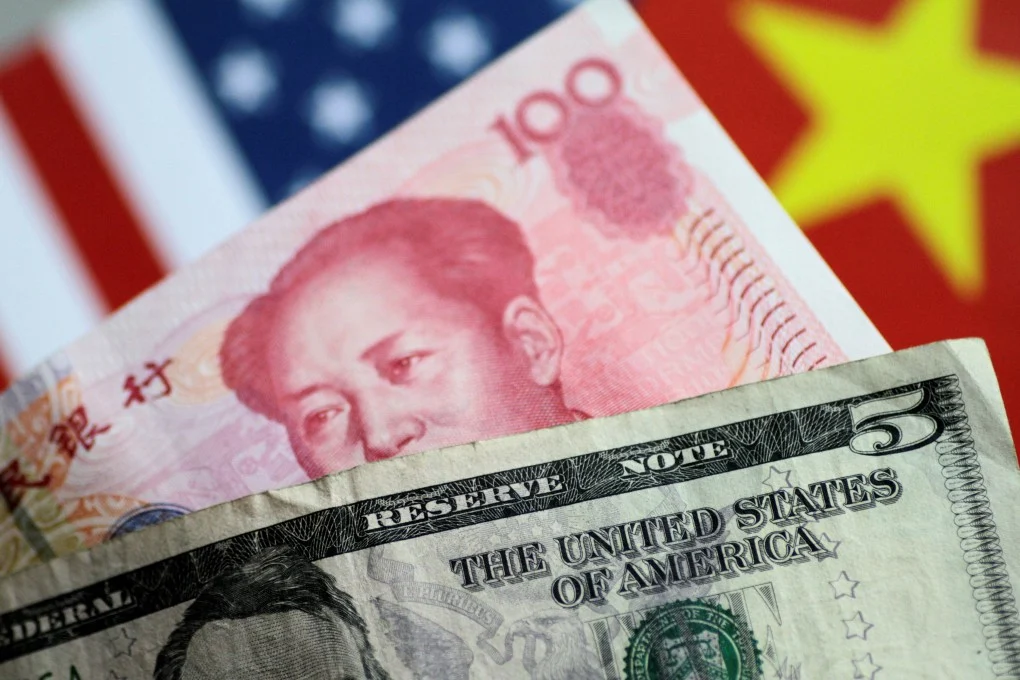The global financial landscape is changing rapidly. For decades, the U.S. dollar has held the status of the world’s primary reserve currency. However, in recent years, predictions of a potential change in leadership have become more frequent. The Chinese yuan, backed by the world’s second-largest economy, is gradually gaining strength. But can it truly dethrone the dollar from its global throne, The Baltimore Chronicle editorial office learns about this.
The Role of the Dollar in the Global Economy
Since the 1944 Bretton Woods Agreement, the U.S. dollar has served as the world’s leading reserve currency. Its influence has remained unshaken for decades.
Why Does the Dollar Dominate?
- Stability of the U.S. economy
- High trust in the U.S. financial system
- Widespread use in international trade
- Highly liquid financial markets
- U.S. military and political power
The dollar backs most global energy contracts, including oil trading. Central banks around the world hold a significant portion of their reserves in U.S. dollars.
The Rise of the Yuan: China’s Strategy
China is actively promoting the yuan as an alternative to the dollar. These efforts became especially apparent after the 2008 financial crisis.
China’s Key Steps:
- Yuan-based trade agreements with many countries
- Inclusion of the yuan in the IMF’s SDR basket in 2016
- Creation of its own CIPS payment system
- Opening up its bond market to foreign investors
China is also signing bilateral agreements with nations looking to reduce dollar dependency, particularly in regions connected to the “Belt and Road Initiative.”
Yuan vs Dollar: Comparative Table
| Indicator | U.S. Dollar | Chinese Yuan |
|---|---|---|
| Share in global reserves | ~59% | ~2.7% |
| Participation in SWIFT | ~40% | ~3.5% |
| Convertibility | Full | Partial |
| Capital market | Highly liquid | Restricted |
| Political transparency | High | Medium/Low |
| Central bank independence | Independent | Politically controlled |
Obstacles to Yuan’s Global Dominance
Despite China’s efforts, there are numerous barriers to the yuan’s acceptance as a global currency.
Major Issues:
- Incomplete currency convertibility
- Capital flow restrictions
- Lack of trust in financial system transparency
- Political tensions with Western nations
- Sanctions and geopolitical risks
These factors deter central banks and investors from making a large-scale shift to the yuan.
De-dollarization: Trend or Strategic Goal?
More and more countries are seeking to reduce their dependence on the dollar, leading to new economic alliances.
Countries Supporting De-dollarization:
- Russia
- Iran
- India
- Brazil
- Turkey
- Argentina
These countries increasingly sign trade agreements in national currencies, especially in yuan. China plays the role of both initiator and beneficiary of this strategy.
Digital Yuan – A New Tool of Influence
Special attention should be given to e-CNY, China’s digital version of the yuan, which is currently being actively tested.
Benefits of the Digital Yuan:
- Government control over transactions
- An alternative to SWIFT for China’s partners
- Can be used for international payments without the dollar
- Increased efficiency of the financial system
Although it’s too early to talk about replacing physical cash, the e-CNY may become a serious challenge to traditional currency models.
What Do Experts Say?
Analysts are divided in their forecasts about the dollar’s future. Some see the yuan as a threat to its dominance; others consider it only a tactical alternative.
Key Opinions:
- The dollar will remain dominant due to the depth of U.S. financial markets
- The yuan may become a regional leader, particularly in Asia
- Real change will take decades, not just years
- The main threat to the dollar is internal U.S. economic issues, not the yuan
Potential Future Scenarios
The world may move in several directions:
- Maintaining the status quo: the dollar dominates while the yuan continues to grow
- A multipolar currency system: several key currencies (euro, yuan, dollar) share influence
- Gradual shift toward the yuan in some countries, without fully replacing the dollar
The Chinese yuan is clearly gaining influence on the global stage. However, it is premature to say it can replace the dollar anytime soon. The global financial system is highly complex and depends not only on economic strength but also on transparency, trust, and stability. The yuan has potential, but a long path lies ahead before it can become a true global leader.
Earlier we wrote about how to save effectively during inflation.

